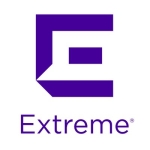What is our primary use case?
We primarily use the solution in order to provide wireless clients access to our hospital network.
What is most valuable?
The BCO is a great basic feature.
We enjoy having access to the security features and MAC filtering.
All the files are standard and supported, which is a good thing.
The initial setup is easy. It's fairly quick to deploy.
The product scales well and expands quite easily.
What needs improvement?
The interface could be better.
It's a hospital network; we have a lot of X-ray machines and other machines which may interrupt the WiFi signals. They need to provide more stability with respect to the interference or help us can analyze what is causing the interference issues from the controller side so that we could more effectively troubleshoot.
The pricing of the product is quite high.
I've heard the WiFi 6 is in the market and I would like to explore WiFi 6 features.
Having a single SSID and adding a personal device or an organizational device that an SSID can automatically pick and connect to would be great.
For how long have I used the solution?
I've been working with the solution for over ten years at this point. It's been a while now.
What do I think about the stability of the solution?
While the product is stable, in some areas when the user sees a disconnection, we are not able to identify whether it's an access point issue or if it is due to some interference in that area of the hospital (due to hospital equipment). We need help detecting issues via the controller.
What do I think about the scalability of the solution?
We have around 4,000 to 5,000 users on the solution.
It is easy to scale as it is centralized. You just need to add more access points if you would like to expand the product.
How are customer service and technical support?
Technical support is great. One time, we had a controller issue due to a hardware failure and they replaced it within two days. They are extremely helpful and responsive. We are satisfied with the level of support they provide.
How was the initial setup?
The initial setup is very simple. It's not overly complex or difficult. A company shouldn't have any trouble implementing it.
Initially, we need to get the hardware and put the basic configurations of network settings in order. I don't think it will take more than one hour to do the basic configuration. More complexity, however, does take time.
The solution doesn't require too much maintenance. Our access points are very old, however, they are pretty stable. For around 10 years, we have been running on the old hardware and it is time to renew, actually, as the product is almost end of support. However, so far, the maintenance has been quite minimal.
What about the implementation team?
The first time we implemented the solution, we did request vendor support.
What's my experience with pricing, setup cost, and licensing?
The product is quite expensive, and it's making us reconsider staying with Cisco.
Which other solutions did I evaluate?
As this solution is near its end-of-life, my company is looking into other solutions such as Aruba or Huawei. We have not decided yet on what we will do, however, the Cisco pricing is very costly. We would like to check out other options that are cheaper, and which can offer the same kind of stability and features.
What other advice do I have?
I'm just a customer and an end-user.
We aren't necessarily using the latest version of the solution. Some access points, for example, are so old we cannot upgrade them any longer.
I'd recommend the solution to other users. If you have the money and budget, Cisco is a good, stable solution.
I would rate the solution at an eight out of ten.
Which deployment model are you using for this solution?
On-premises
Disclosure: I am a real user, and this review is based on my own experience and opinions.


















